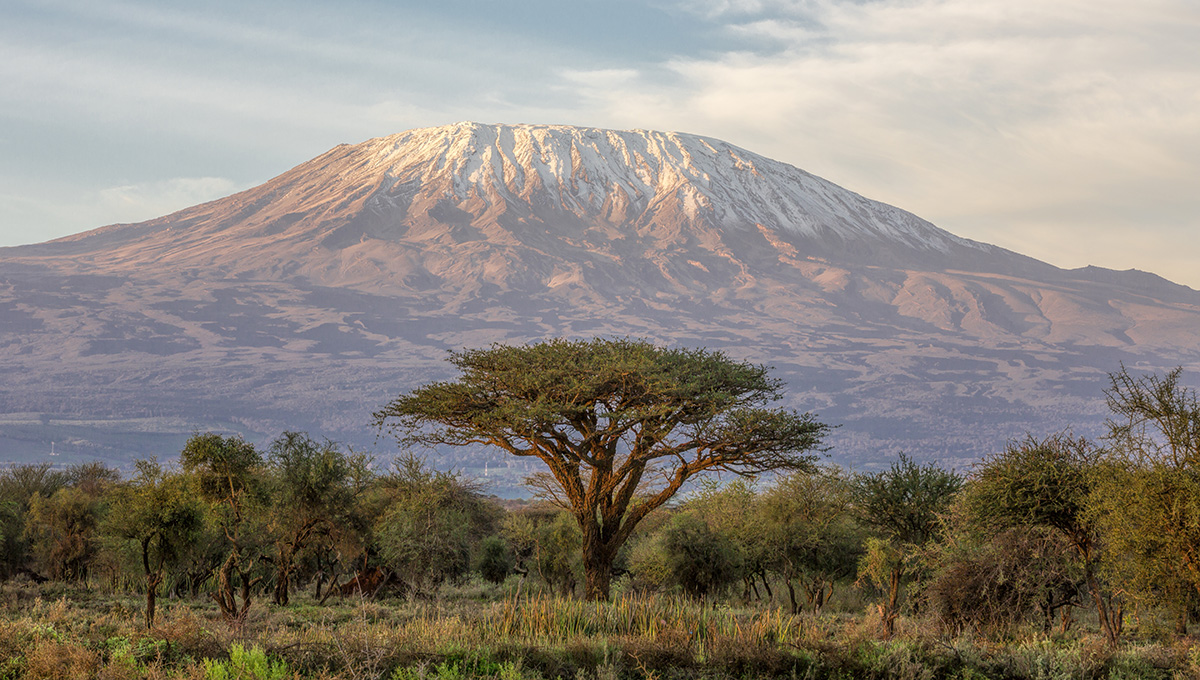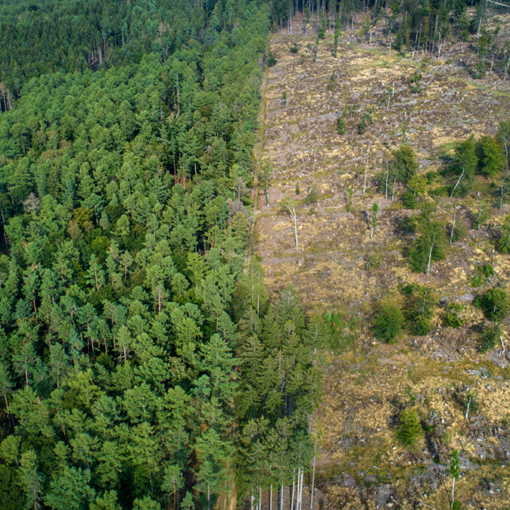[ad_1]
“You cannot be an impact investor without considering emerging markets. Investing in Africa presents both financial and impact opportunities.” — Jennifer Kenning, CEO and Co-Founder, Align Impact
Investors looking to make a difference and make a profit should consider the fastest-growing continent for technology adoption, natural resource opportunities, and human capital: Africa.
The second largest continent by land and population, Africa has abundant untapped natural resources, vast potential for sustainable agriculture, transformative free trade agreements, new policies to improve women’s rights, and soaring digital commerce opportunities. In the quest for strong returns that can also drive positive global change, it cannot be overlooked.
Africa has the world’s most rapidly expanding workforce, with over 60% of the population under the age of 25, and forecasters predict that technology and infrastructure improvements will set the continent up for strong growth in the years ahead.
Here are eight reasons why you should consider impact investing in Africa:
1. Africa Has Abundant Energy and Natural Resources
Africa holds 40% of the world’s gold and 30% of its mineral reserves, including ample supplies of uranium, diamonds, and iron, according to the United Nations Environment Programme (UNEP). Moreover, amid the energy crisis brought on by the Russia-Ukraine conflict, Africa’s vast oil and gas resources are more valuable than ever. For example, Mozambique possesses 150-trillion cubic feet of liquefied natural gas (LNG) in offshore reserves, the equivalent of 24-billion barrels of oil. The Uganda-Tanzania pipeline is also being developed through foreign direct investment (FDI) over the next few years.
2. Africa Holds 60% of the World’s Uncultivated Arable Land
Global food demand will increase by 70% by 2050, with demand in Africa growing even faster, according to World Bank forecasts. With so much available arable land, Africa can help meet the challenge. But investment and education are needed to modernize farming practices on the continent. Commercial lending through banks and institutions is costly, so there is an opportunity for impact investors in agricultural start-ups.
The “Agriculture in Africa 2021: Focus Report” predicts that improved agricultural operations could spur growth across the continent’s entire economic and financial ecosystem. Coupled with the creation of the African Continental Free Trade Area (AfCFTA), achieving food security for the whole continent is possible as is increasing food exports. Agriculture accounts for 14% of GDP in sub-Saharan Africa and is a major employer. While intra-regional trade in agricultural products is lower in Africa than elsewhere, the AfCFTA may help address this.
3. Africa Could Be a Green Energy Hub
Beyond oil and gas resources, Africa has great potential for wind and solar energy generation and can play a vital role in countering climate change. The continent has already begun leveraging renewable energy sources, including hydro, geothermal, and biofuels. However, investment at scale is imperative if African countries are to expand energy access while meeting their climate goals.
At the 2022 Sustainable Energy for All Forum in Kigali, Rwanda, Bloomberg Philanthropies announced a new $242 million investment to speed up clean-energy adoption in 10 developing countries, including Kenya, Mozambique, Nigeria, and South Africa. Reducing dependence on fossil fuels and foreign sources are among the main rationales behind promoting alternative power sources. But on a human scale, these solutions can help extend the power grid to areas where it was previously cost-prohibitive. That increased connectivity will lead to greater skills, employment, and GDP growth.
Indeed, Africa has essentially unlimited green energy potential. The International Renewable Energy Agency (IRENA) estimates the continent’s capacity could reach 310 GW by 2030. This would not only satisfy local power needs but also position Africa as a global leader in clean energy production, setting it up for investments in related infrastructure, climate-smart agriculture, and sustainable natural resources management.
The sustainability challenge is particularly acute for Africa. As Jennifer Kenning of Align Impact observed in reference to a recent Intergovernmental Panel on Climate Change (IPCC) report:
“While Africa is one of the lowest contributors to greenhouse gas emissions causing climate change, they are and will continue to experience widespread loss and damages due to climate change including biodiversity loss, water shortages, reduced food production, loss of lives and reduced economic growth.”
4. The African Continental Free Trade Area (AfCFTA) Will Revolutionize Trade
AfCFTA will cover a market of 1.2 billion people with a gross domestic product (GDP) of $2.5 trillion making it the world’s largest free trade area by participating countries. As of June 2021, 54 African Union members have signed on. These nations can expect to reap the benefits of streamlined cross-border financial transactions, trade expansion, greater transparency, and increased collaboration. AfCFTA participants estimate the agreement will lift 30 million people out of extreme poverty by 2035.
Thanks to global ESG standards, businesses will have fewer restrictions on the sale and purchase of goods. Import tariffs will be eliminated on 97% of goods traded on the continent. AfCFTA member countries could act as a single market and harness that influence to grow exports and expand trade.
5. Investing Contributes to Social Impact and Women’s Rights
Closing the gender income gap and opening new markets through AfCFTA will benefit women and investors alike. According to the Economic Commission for Africa, women account for around 70% of informal cross-border traders in Africa. Historically, they have been vulnerable to harassment, violence, theft, and imprisonment. AfCFTA will improve conditions for solo women business owners who previously lacked established trade channels or protections.

Courtesy of Girl Power Talk
6. New Markets and Increased Trade Ensures Diversification
Skilled investors know the importance of diversifying an investment portfolio. AfCFTA will spur export diversification, accelerate growth, attract FDI, and increase employment opportunities and income. Manufacturing will be a big component of the estimated $560 billion increase in African exports.
Exports within the continent could also increase by 81%. According to the Mo Ibrahim Foundation, consumer and business spending could reach $6.7 trillion by 2030, making African countries more competitive both regionally and globally.
While the continent suffers from a skills gap and a lack of opportunities for young workers, AfCFTA will help address those deficits. With skilled workers, especially those in STEM fields, in short supply, many companies have started training programs in collaboration with mentoring organizations and schools to help meet the growing demand.
7. Expanding Markets and Increased Internet Penetration and Digital Commerce
Africans are quickly going digital. They are conducting business online and increasing their skills in data analytics, programming, and search engine marketing. While connectivity lags in some regions, mobile device use continues to increase. A staggering proportion of African web traffic — as much as 89% in some countries — comes from smartphones.
Internet-connected smartphones have given young entrepreneurs access to new markets as well as professional growth and development through online education and mentorships. Africa is innovating with massive online open courses (MOCC) and many colleges are expanding their reach with EdTech and online learning, which reduces the cost for many students.
Girl Power Talk is one example of how to expand digital opportunity. To date, Girl Power Talk employs young Africans from five countries for work on global client mandates in an environment that nurtures learning, growth, and development. Through Girl Power USA, a 501(c)(3) non-profit organization, the social enterprise creates sustainable partnerships that integrate their local team members with select non-governmental organizations (NGOs), including Tollen Children’s Center (Kenya), SaveGirl (Uganda), and E-Enable (Nigeria). Other initiatives, such as the IN On Africa’s ALofT program and Mentor X-Africa, also work to empower youth, encourage skills training, and promote career advancement.

Courtesy of Girl Power Talk
8. Indigenous Knowledge Systems Provide Competitive Advantages
Africa’s population is on track to reach 1.5 billion by 2030, half of whom will be under 25. Many are expected to move to urban areas for jobs. Projections anticipate an increasingly well-skilled and well-educated continental workforce.
But while innovation and a global perspective are essential, uncirculated indigenous knowledge has a critical role to play as well. Introducing young people to technology and the digital realm is key, but that doesn’t mean ignoring the value of local cultural and socio-economic differences. Like such soft skills as empathy, communication, and flexibility, recognizing and honoring traditional knowledge and practices can add value for businesses. Customs, knowledge, and understanding vary across the continent and businesses and investors can achieve competitive advantage by working with local communities through culturally connected and skilled workers.
How to Get Started Investing in Africa
Due diligence is key to any investment and expanding a portfolio into Africa is no exception. Prospects vary across different regions and industries. But whether it’s in mining, tech, digital commerce, or consumer services like banking and telecom, experts believe the rate of return for FDI and other African investments is potentially higher than anywhere else in the world. There is always risk, of course. Investors must be mindful of political tensions, inadequate infrastructure, and other potential impediments.
Google, Ford Motors, and General Electric as well as Japan’s Itochu Corporation and the Dubai-based Mara Group are among the companies that have already invested in Africa’s future. When it comes to FDI, the Netherlands leads with $67 billion as of 2019, according to the United Nations, followed by the United Kingdom at $66 billion, France at $65 billion, and China at $44 billion. But given the continent’s size and potential, such outlays are effectively drops in the bucket.
The message is clear: Through expanded trade, increased manufacturing, and tapping its natural resources, as well as investments in infrastructure development, greater internet penetration, and job training, Africa presents an almost limitless opportunity for investors looking to do well and do good.
If you liked this post, don’t forget to subscribe to the Enterprising Investor.
All posts are the opinion of the author. As such, they should not be construed as investment advice, nor do the opinions expressed necessarily reflect the views of CFA Institute or the author’s employer.
Image credit: ©Getty Images/1001slide
Professional Learning for CFA Institute Members
CFA Institute members are empowered to self-determine and self-report professional learning (PL) credits earned, including content on Enterprising Investor. Members can record credits easily using their online PL tracker.
[ad_2]
Source link









 Bitcoin
Bitcoin  Tether
Tether  XRP
XRP  USDC
USDC  Lido Staked Ether
Lido Staked Ether  Dogecoin
Dogecoin  LEO Token
LEO Token